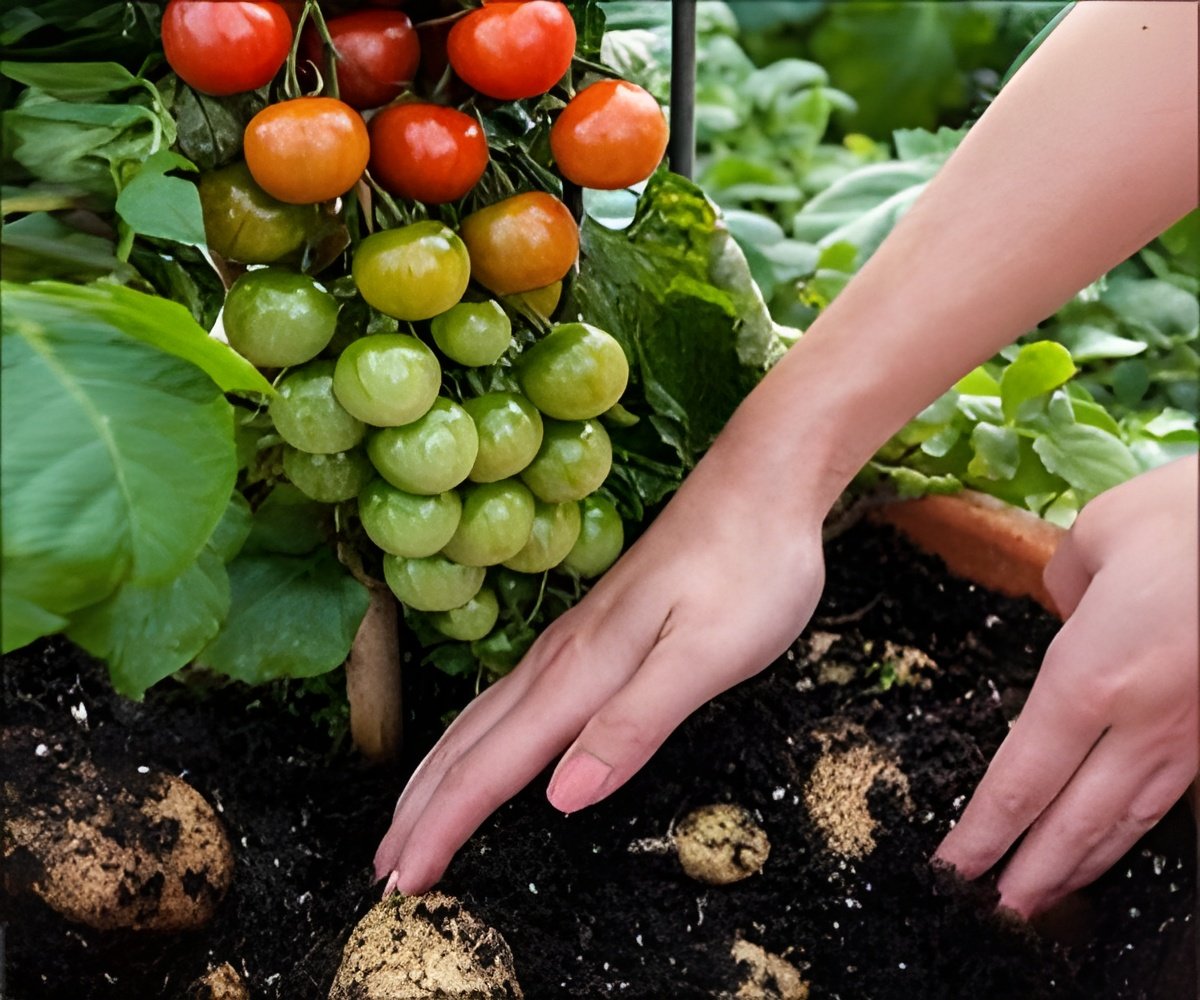
"Earthworm casts present in vermicompost contain proteins, vitamins, and micro- and macro-elements such as nitrogen, phosphorous, potassium, calcium, and magnesium," explained Johannes Van Staden, lead author of a recent study published in HortScience. Van Staden and colleagues Mayashree Chinsamy and Manoj Kulkarni, from the Research Centre for Plant Growth and Development at the University of KwaZulu-Natal Pietermaritzburg, studied the effects of vermicompost-leachate (VCL) on tomato seedlings subjected to various temperatures and levels of water stress.
To investigate temperature stress, potted tomato seedlings were exposed to temperatures of 10, 15, 20, 25, and 30 °C and treated with and without vermicompost leachate (1:10 v/v). The experiments of water stress involved established tomato seedlings treated with and without VCL (1:10 v/v) treated with varying volumes (15, 30, and 45 mL) of half-strength nutrient solution. "Most of the morphological parameters of VCL-treated tomato seedlings were not only markedly enhanced at optimum temperature (25 °C), but also exhibited significant improvement under high temperature (30 °C)," the researchers wrote. "At lower temperatures (10, 15, and 20 °C), although VCL promoted several growth parameters of a tomato seedling, this improvement did not differ significantly with the respective controls."
The water stress experiments showed that photosynthetic pigments and compatible solute contents were significantly reduced in VCL-treated tomato seedlings at 15 mL. "Physiological parameters were reduced within the range of those found in more favorable conditions as observed for 30-mL supply of nutrient solution," the authors noted. The scientists said that the results of these water stress experiments clearly demonstrate the possibility of using less water resources to produce quality crops.
The results also showed that the constant supply of VCL improved morphological characters, including leaf area and shoot/root biomass, enabling VCL-treated tomato seedlings to perform better. The scientists concluded that vermicompost-leachate is a suitable soil amendment alternative that can significantly improve overall crop performance of tomato seedlings under abiotic stresses. "More importantly, VCL is organic and therefore can be used as an environment-friendly fertilizer supplement," they added.
Advertisement








